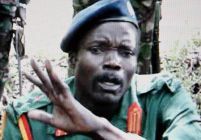Uganda’s LRA denies attacking Juba civilians
June 13, 2006 (PARIS) — The Ugandan rebel group denied being involved in an attack on the outskirts of the south Sudanese capital Juba on Sunday night where nine people killed by gunmen.
 In a press release issued Tuesday the Lord Resistance Army High Command denied “categorically any involvement” in Juba attack. The LRA said “none of our soldiers were anywhere near the reported area”
In a press release issued Tuesday the Lord Resistance Army High Command denied “categorically any involvement” in Juba attack. The LRA said “none of our soldiers were anywhere near the reported area”
The attack occurred on Sunday 11 June at about 10 p.m. (1900 GMT) in the Gumba area on the east bank of the Nile and a few miles from the city centre. Nine people were wounded, including two children and five women.
The LRA accused the Ugandan government of attempting to undermine the South Sudan government peace initiative to bring peace in Uganda.
The rebel group “strongly believes that this is a characteristic and a cynical attempt by the Museveni’s dictatorship to sabotage the current peace initiative.” Ugandan army “has used such tactics before in Ugandan soils in order to torpedo previous peace processes”, the statement said.
Southern Sudan initiative to mediate in the conflict between the Ugandan government and the rebel LRA appeared to be stalling at the weekend after Kampala refused to meet the insurgency’s leadership because it had been indicted by the International Criminal Court (ICC) for war crimes.
An LRA delegation arrived in Juba, the capital of southern Sudan, last week ready to start talks, but the Ugandan government did not send a team. “We cannot have a head-to-head meeting with the indicted LRA commanders.
Since several years, Sudan authorises Ugandan army to pursue the LRA inside the Sudan. But Khartoum indicated it has no intention to renew indefinitely this permission and transport the Ugandan conflict to the harmed southern Sudan.
Southern Sudan’s vice president, Riek Machar, gave elusive LRA leader Joseph Kony $20,000 (11,000 pounds) during a meeting last month near the Congo border, hoping to encourage the talks.
In March, the U.N. Security Council adopted a resolution urging a U.N. force in southern Sudan “to make full use of its current mandate and capabilities” to pursue LRA rebels in Sudan.
Britain’s U.N. Ambassador Emyr Jones Parry, who is leading the council’s visit to Africa, told reporters “the Security Council has asked for a full account of the activities of the LRA. It believes that the regional dimension of the LRA is a threat to the peace and the stability of the region, and it would very much like this scourge to be eliminated.”
Asked whether the council wants Kony and the others arrested during peace negotiations, Jones Parry said if a political process can draw the bulk of “the more innocent” LRA victims away from the group “that’s to be encouraged.”
“But I think I would support the proposition that the five indictments issued by the International Criminal Court should be given effect,” he said.
Kiir said he didn’t disagree with the council, but said efforts to arrest Kony and the other leaders had failed “and this was why we opted for the peaceful solution.”
“We feel that arresting Joseph Kony is not a solution to the problem by itself,” he said, “because arresting Joseph Kony, another leader will just appear from nowhere. It will be better that we follow this project first. When we fail to convince them with the logic to come back, then we can resort to implement the ICC order.”
Asked whether he would meet with Kony, Kiir said, “If I want him to leave southern Sudan I might talk to him personally, but it has not come to that stage that I’m going to meet him.”
To read the text of the LRA press release go at http://www.sudantribune.com/article.php3?id_article=16180
(ST)
